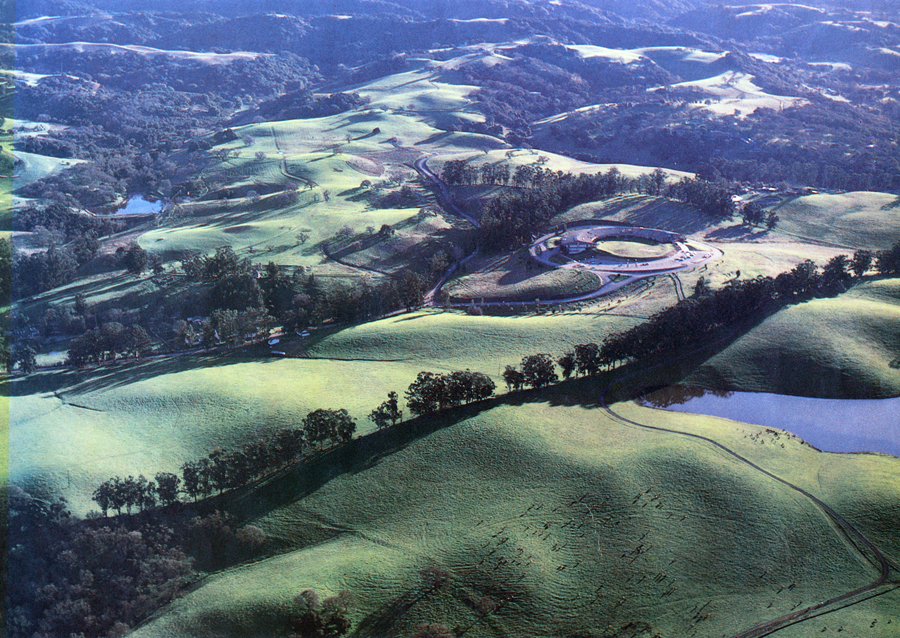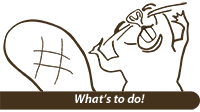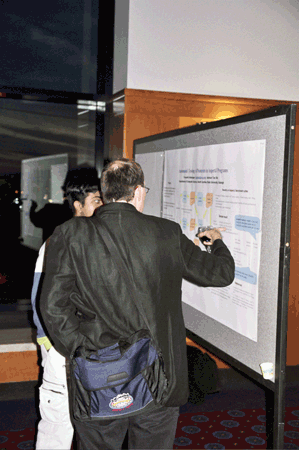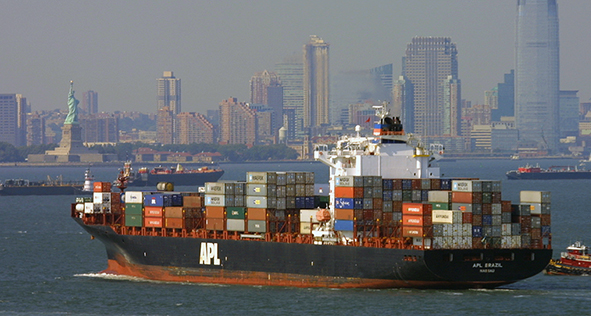

The best thing and the worst thing about ooPSLA is how many things there are to do and see. Objects are now mainstream, so ooPSLA is about software and programming, and this is apparent in this year's stuff. On this page, I hope to give both old hands and newcomers an idea of how ooPSLA works and what's to see.
The main parts of ooPSLA are these:
The rest of ooPSLA is big. Here are the other proper parts of ooPSLA every year:
and here are the co-located events:
These are the talks in the main room (517a) which is also the Onward! room. There is a historical distinction for the names, which is that Keynotes are morning talks and Invited Talks are in the afternoon. Mostly for Keynotes we try to not schedule other venues at the same time, but we can't always do that anymore, so this is not part of the distinction.
This year we have an unprecedented set of Keynotes and Invited Talks. To see everyone in this lineup, a person would need to go to 7 conferences, and in some cases, that person would need to wait years for one of our speakers to appear. Here they are:
He's our opening keynote speaker, and you've probably not heard of him. He is the Director of the MFA program I went to at Warren Wilson College in Swannanoa, North Carolina. A few years back he wrote Maps of the Imagination, which is extended metaphor between writing and cartography. He is going to speak on a topic related to the book.
Because he taught in the MFA Program, I've had lots of chances to see him in action. He is a very, very good speaker, with a subtle but pervasive sense of dry humor. I'm pretty certain you will like him and his talk.
I don't them at all, but I and almost everyone knows Second Life. This is the Onward! Keynote. I've been to Second Life a couple of times—it can be quite addictive, so I try to stay away. There is an ooPSLA booth at the UC Irvine Bren School island there. I don't know what to expect from this talk: it could be super-technical, it could be a romp through Second Life, it could be boring to tears. But I plan on going.
He is an icon in our field. He is Turing Award Winner. He rarely speaks at conferences like ooPSLA, and in the past I have tried to get him to speak here. Somehow Steve Fraser got him to agree. He'll be speaking on collaboration, but right after the break following his talk he'll be on a Panel on No Silver Bullets. I've heard him speak and he's pretty good. He's charming and engaging.
John and I go way back. He wasn't my adviser, but I worked for him for 3 years after I graduated. If I were to list all the ideas he came up with in his career, you would certainly not believe me, so I'll mention the ones that you would believe. He of course invented Lisp. And he coined the term "Artificial Intelligence" and was largely responsible for making it a discipline. He directed the Stanford AI Lab (SAIL) for a long time, including the entire time I was there. There are still aspects of the UI of what we had there that aren't fully realized on today's systems. One can find the precursors to IM, Wikis, and Blogs on the system. The Yum Yum Guide for ooPSLA is copied from SAIL's, though SAIL's was a Wiki - back in the 1970s. Here is a photo of SAIL:
This is on Arastradero behind Stanford—though the land to the lower left of Arastradero in this photo is part of Stanford, the Lab was about 3 or 4 miles from Campus.
He is our second Turing Award Winner.
This talk will be pretty technical. It's about a language based on logic that could be used to express the effects of speech acts. It has the interesting property of being able to directly refer to the past. John McCarthy is the smartest person I have ever known.
He was a surprise addition. Steve Fraser got him to agree to be on the Panel on No Silver Bullets with Fred Brooks, and he agreed to give a talk. It's on documenting and specifying programs, but it's also about the larger question of separation of concerns. I don't know him at all, having just exchanged email with him for the first time the other day for this conference. He seemed to have a sense of humor, and his official photo features a miniature Schnauzer.
Brooks, McCarthy, and Parnas will all speak on Wednesday, so it's quite a day.
I've known Gregor for quite a while—since the CLOS days back in the mid-1980s. He's smart but expecially he is passionate about making programming easier. I was on the Ultra Large Scale software expert group with him for a year in 2005–2006. He is a great speaker. This is his second appearance at ooPSLA as a keynote-level speaker, which is rarely if ever done.
As you all know, he's the aspects guy, but he's got lots of ideas, and has been able to take ideas from lots of different parts of the software world and adapt them to the mainstream. I think this could be the most satisfying keynote talk for most people.
She brought reflection to the OO world. She has a raft of interesting accolades to her name. To be honest, as I write this I have no idea what she's going to speak about—we still have (as of September 2, 2007) no title or abstract from her, which I hear is not unusual.
We gave the keynote for the History of Programming Languages III conference (HOPL III) on June 9, 2007. The audience was a bit small and a tad on the older side. In the talk we look at a variety of programming languages and ideas from them and from programming in general. We make some points that we think could inform language designers in the future, but often there's a twist or humor. The talk is a pretty fast-paced interchange between us and is fairly heavy on the multimedia. Crista Lopes (Onward! Chair) asked us to reprise it. We'll do that Tuesday night from 8:00pm–9:30pm. The talk is called 50 in 50. I'll be there.
These are the peer-reviewed mainstream research papers. I normally read the research papers in the proceedings, but this year here are some of the papers I hope to see presented:
Onward! is one of my favorite parts of ooPSLA. This year it's a little more subdued than usual with only 4 papers and some films—along with the Keynote. But, I'm looking forward to a couple of the papers, and the films will be a surprise since I don't know anything about them yet. If I had to pick 2 papers only to go to, they'd be these:
Essays is the newest addition to the main part of ooPSLA. It is for thoughful ruminations on things pertaining to software and programming. Part of the appeal is that the writing, argument, and presentation should be spectacular. We have a ways to go for that to be always true, but I'm going to check out both essays this year:
Panels are more unscripted. For most of the years I attended ooPSLA, I would go only to keynotes and the panels, which were the main things that would not be in the proceedings or companion. Sometimes there is a good fight at the panels. The two I'll be going to are these:
The former because I'm a sucker for history, and the latter for the panelists.
ooPSLA always has a lot of tutorials. They cost money to attend unless you have an All Access Pass. There are lots of good teachers and topics this year. Don't forget to consider the APL tutorial (which is not part of the ooPSLA tutorials, but could be interesting anyway)! Here are two I would consider:
The write-up doesn't reflect it yet, but the tutorial will be split into 2 parts, with Steve Fraser looking at Agile Methods, and David Lorge Parnas looking at Rigid Method.
The teachers are very knowledgeable and good as teachers, and the topic is hot these days. I might attend this one, though C-like languages turn me off.
These are like small conferences. Often or usually there is an application process to attend, but sometimes it depends on the workshop organizers and whether they need more attendees. I would be tempted by these two:
This is a symposium for educators of all sorts, not just teachers at schools. It costs a bit to attend this, but as of this writing, their keynote speaker is Kathy Sierra, who would be a welcome keynote at ooPSLA proper.
This is for doctoral students to get advice from a panel of experienced educators and researchers. It isn't open to the general ooPSLA attendee.
These are papers from the frontlines. Ralph Johnson is the chair. These are loosely peer-reviewed, so the quality is good, but the presenters are talking about real systems and how to put them together.
This is just what it sounds like. We'll have a room or set of rooms set aside from people and companies to demo their neat stuff. Real code running and crashing right before your very eyes!
These are research results presented on big posters on 4'x8' display stands. Like this:

They are mostly students' research, but some of the workshops will produce posters (that don't look so professional). On Monday night at the Welcome Reception, the posters will be on display—in room 710. This room has a great terrace and views into downtown. Let's hope it's not raining, snowing, blowing gale force, and stuff like that.
For the rest of the week, the posters will move into the Courtyard where we'll have our breaks.
The student posters are judged by a panel during the Monday night reception, and the winner is announced Thursday afternoon.
5-minutes talks. Strict limit. Sign-ups right until they start.
Two wiley coders give attendees a problem to solve using different methodologies to explore what design is and where the boundary is between design and implementation. The two guys are worth it alone.
This symposium is exploring languages that aren't based on arguing with a compiler all the time. The organizers are trying also to bring back the days when practitioners and theoreticians went to the same conference and sometimes even talked to each other. I hope to attend part of it.
Memory management, garbage collection, etc. A great symposium that co-locates with ooPSLA every other year.
All about Wikis. Ward Cunningham is giving the keynote.
This symposium is on designing and building software libraries. Doug Lea is giving the keynote.
Yes, that APL. SIGAPL is holding its first conference in a long time—with ooPSLA. They'll hold a tutorial and all that. Guy Steele is giving the keynote. I remember when ooPSLA was in Vancouver back in 2004, I was sitting in a meeting room high up in the hotel with John Vlissides. A boat was coming into the harbor that looked just like this one, and he said something like, "I guess they still program in APL a lot up here—they have ship containers of it from Brazil."

This is a small version of the Pattern Languages of Programs conferences that the Hillside Group and Hillside Europe put on all over. There are n of them: PLoP in Allerton Park, Illinois; ChiliPLoP in Carefree, Arizona; EuroPLoP in Kloster Irsee, Germany; SugarLoaf PLoP in Brazil; VikingPLoP in Scandanavia; and sometimes Koala PLoP in Australia. The conferences don't use presenations, but writers' workshops instead, where we review papers for improvement rather than present them and gloat. It's a different sort of experience. I'm heavily involved in Hillside. I'll be here part of the time.
Components, frameworks, grids, High Performance Computing. Very interesting.